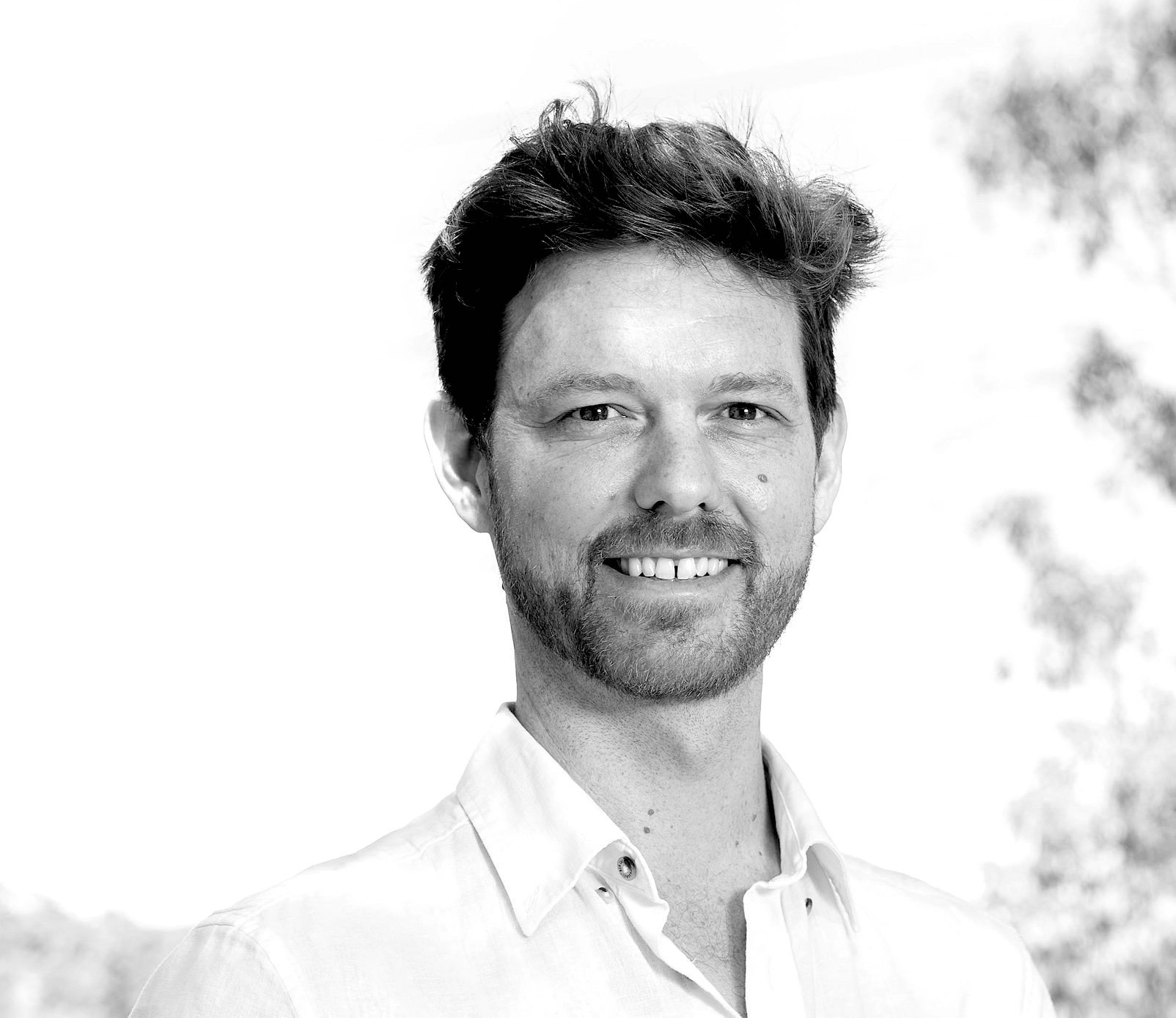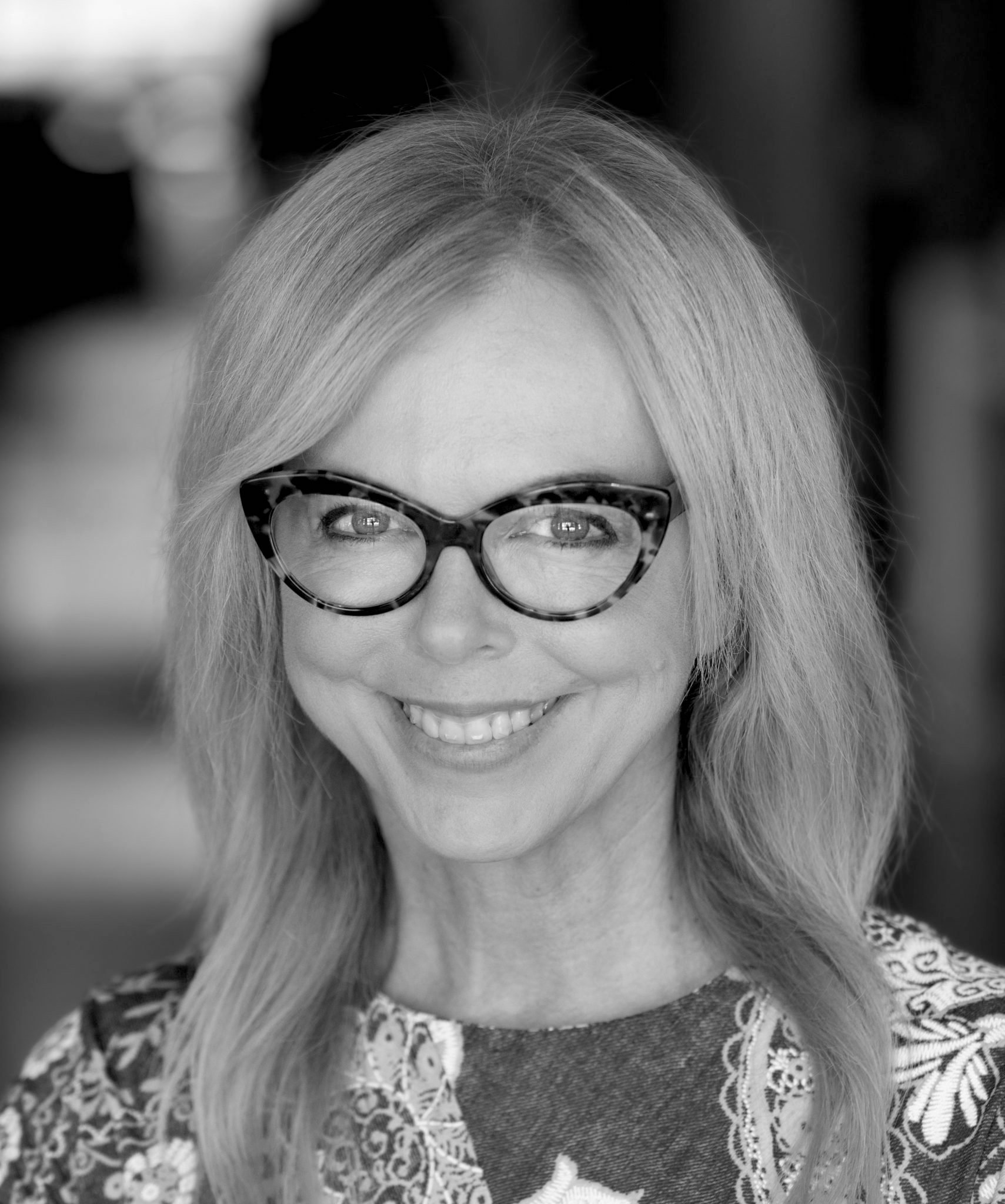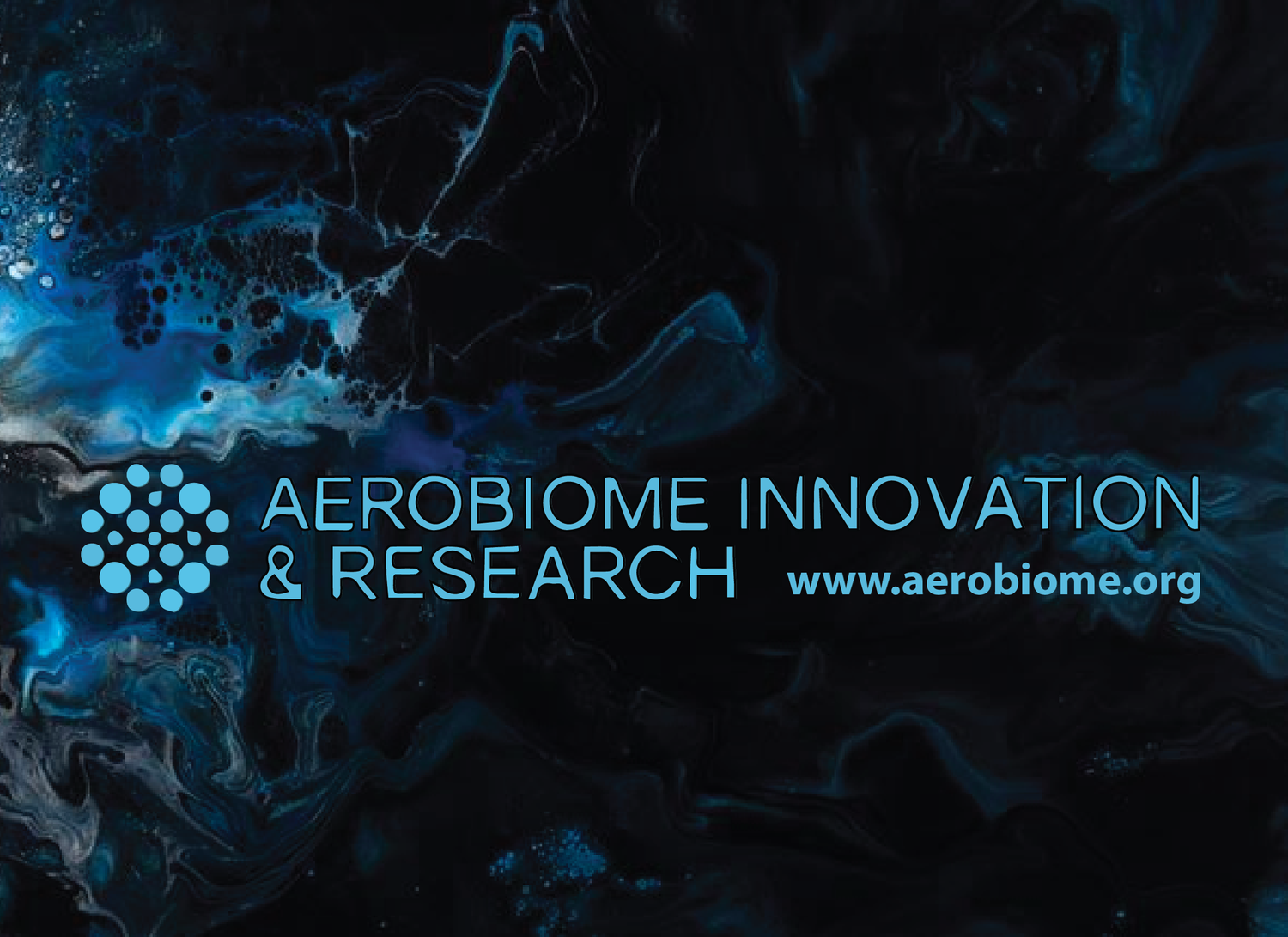The AIR Hub Team
-

Jake Robinson: Founder, Co-Director & Chief Scientist
Jake Robinson is a microbial ecologist. His research focuses on the nexus between biodiversity and human health, and on developing innovative strategies to conserve and restore ecosystems. He’s an academic in Martin Breed's Restoration Genomics lab at Flinders University and an Editor for the journal Restoration Ecology. Jake has pioneered studies in aerobiology and soil ecoacoustics.
Jake recently published some of his aerobiome research in the popular science book Invisible Friends. It’s all about how microbes shape our lives and the world around us (but in beneficial ways!). For more information, visit: www.jakemrobinson.com
-

Martin Breed: Co-Director, Lab Leader & Chief Scientist
Martin is a scholar of restoration ecology, ecosystem health, and genomics at Flinders University. Career highlights include working with the UN and WHO on the links between biodiversity and human health via the microbiome, and serving as a patron for the IUCN Species Survival Commission.
He runs a research group that develops solutions to pressing global issues. Examples of their work include working on optimising biodiverse urban green spaces to maximise human health and biodiversity; pioneering the use of genomics to improve ecosystem restoration; and harnessing the power of plant-microbe interactions to improve ecosystem health.
-

Susan Prescott: Senior Advisor (Immunology and Planetary Health)
Professor Susan Prescott MD PhD is a paediatrician and immunologist internationally recognised for her cutting-edge research into the early environmental determinants of health and disease. Her work promotes awareness of the interconnections between personal and planetary health in a way that inspires wiser, creative, integrated approaches grounded in reciprocity for social and ecological justice and flourishing futures.
She is a Fellow of the Royal Australasian College of Physicians and the prestigious Australian Academy of Health and Medical Sciences. She was the founding President of the DOHaD Society (Developmental Origins of Health and Disease) of Australia and New Zealand.
-

Gwynne Mhuireach: Senior Advisor (Aerobiomes & the Built Environment)
Dr. Gwynne Mhuireach is a research assistant professor at the Institute for Health in the Built Environment at the University of Oregon.
She has a multi-disciplinary background combining Biology, Architecture, and Landscape Architecture. Mirroring this broad range of experiences, Gwynne’s research interests revolve around the relationships between human and planetary health, focusing specifically on built environment microbiomes (incl. aerobiomes) and urban food systems. She has pioneered explorations of urban grey and green aerobiomes, transfer of soil microbes to human skin during gardening, microbiomes of sustainable building materials (e.g., mass timber, earthen plaster) and effects of short versus long food supply chains on food and the gut microbiome.
-

Craig Liddicoat: Senior Data Scientist (Microbiomics)
Craig’s research examines the connections between soil, biodiversity, environmental microbiomes, and human health. He uses microbial genomics (DNA-based) tools to survey environments (e.g., airborne dust, plant-soil systems) to better understand plant-soil-microbial connections and their contributions to ecosystem- and human- health. Working Martin Breed’s lab at Flinders University, his primary role is supporting the Aotearoa New Zealand-based People Cities and Nature research program activity: ‘Restoring health promoting soil biodiversity’.
Additional skills and experience include soil science, spatial/ecological epidemiology, digital soil mapping, machine-learning, mouse model studies, project management and science communication.
-

Xin Sun: Senior Advisor (Soil Biodiversity)
Prof. Xin Sun is a scholar of soil ecology at the Institute of Urban Environment, Chinese Academy of Sciences. Her research focuses on how global change factors influence soil biodiversity and the underlying mechanisms.
Sun runs a research group that explores the patterns and drivers of urban soil biodiversity and multiple links to human health in cities - including via the aerobiome (a key exposure medium).
Sun’s lab also investigates the role of urban invertebrates in regulating soil-borne human pathogens to target the management and restoration strategies of urban soil biodiversity.
As soil essentially ‘feeds’ the aerobiome, understanding soil properties and dynamics plays a vital role in aerobiome science.
-

Angela Matheickal: Bio-Designer and Landscape Architect
Angela is a bio-designer and landscape architect who explores how natural processes work and uses this as inspiration for design. After graduating with an Oxford University Biology degree, Angela undertook a two-year Master’s degree, exploring urban planning, landscape design and research methods. Her recent focus has been on people-centric and context-driven places, along with the invisible world of microorganisms and their role in creating healthy landscapes.
She aims to connect her understanding of the living world to create nature-based solutions for pressing environmental problems. This includes creating innovative ecological designs to improve the aerobiome (and general air quality) in urban environments.
-

Harriet Whiley: Senior Advisor (Environmental Health)
Harriet Whiley is an Associate Professor in Environmental Health. As an environmental microbiologist and accredited Environmental Health Officer, her research is aimed at informing best practice control of pathogens to protect human health. This often involves assessments of air quality.
However, Harriet is also extremely interested in understanding the beneficial components of air and how to apply this knowledge, along with her experience with pathogens, to create a holistic picture of environmental health.
Harriet is passionate about collaborative research with industry and government partners to facilitate the feedback loop between research, regulation, and practice. Her research areas include infection control, biofilms, air quality, water quality, food safety and risk assessment.
-

Sunita Ramesh: Senior Advisor (Molecular Biology)
Dr Sunita Ramesh joined Flinders University as a Lecturer in Molecular Biology in 2020 and established the Transport Physiology and Signalling research group. She is now a Senior Lecturer in Molecular Biology.
Her laboratory uses several heterologous expression systems, such as Xenopus oocytes, E. coli, yeast, tobacco cells, plants, and cell lines, to answer diverse molecular biology research questions.
Her research group focuses on investigating plant-soil-microbe interactions, which play a fundamental role in shaping the aerobiome. Sunita’s lab also investigates the role of plant exudates in improving abiotic stress tolerance in plants.
-

Kevin Lee: Senior Advisor (Microbial ecology and air quality)
Dr Kevin Lee is a microbial ecologist and a Senior Lecturer in the Department of Food Science and Microbiology at the Auckland University of Technology (AUT) in Aotearoa, New Zealand. Kevin's current research is focused on the distribution and diversity of microorganisms in a wide range of ecosystems, including geothermal systems, deserts, polar regions, herbivorous fishes, squids, kombucha, and the atmosphere.
His work, which often involves molecular biology and bioinformatics, has contributed towards our search for life on another planet by examining our most similar environments, such as the hyperarid Atacama Desert.
-

Joel Brame: Research Scientist (Aerobiomes & Human Health)
Joel Brame brings over twenty years of experience in human physiology, education and health to the aerobiome research community. He became fascinated by the possibilities emerging with next-generation sequencing methods, especially as they relate to health and immune regulation.
His particular research interests involve exploring the potential of environmental microbiomes to supply health-associated bacteria, including anti-inflammatory gut-associated butyrate-producing bacteria, to people. Joel is a final-year PhD candidate in Associate Professor Martin Breed’s lab at Flinders University.
-

Nicole Fickling: Research Scientist (Aerobiomes & Ecosystem Health)
Nicole’s research interests are in environmental microbiomes and ecosystem health while considering links to human health. Previously, she has conducted research looking at soil bacteria and soil-derived metabolites with benefits to human health. Nicole has also pioneered a study on environmental microbiome circadian rhythms.
Nicole is now working towards her PhD in A/Professor Martin Breed’s research lab. She has an interdisciplinary focus on fragmented ecosystems, environmental microbiomes, and ecosystem and human health using microbial genomic approaches.
-
Emma Kuhn: Research Scientist (Environmental Health)
Emma Kuhn is an expert in residential methamphetamine contamination. She has experience in microbiology and is an accredited environmental health officer.
Emma is interested in understanding how the beneficial components of the aerobiome can be promoted to safeguard human and ecosystem health.
She is currently completing her PhD on a public health perspective on methamphetamine contamination which analyses industry practices and stakeholder engagement. Her research has informed the International Parliament, and she has consulted for Australian State Government policy and legislation to improve public health outcomes.
-

Kate Robinson: Senior Data Analyst
Kate is a detailed-oriented data analyst and scientist with over 10 years of experience in processing and reporting statistical data within the environmental, health and education sectors. Her work includes designing, analysing and interpreting complex data models.
Kate has worked with big ecological datasets in consultancy and research settings. She is fascinated by the aerobiome and how the microscopic world can have a considerable impact on our lives and the ecosystems we depend upon. Kate contributes to the big data analysis involved with the AIR Hub studies.
Kate is a member of the Royal Statistical Society and is keen on creating engaging and intelligible data visualisations to convey complex research outputs to broad audiences.
-

Christian Cando-Dumancela: Laboratory Manager
Christian is the AIR Hub laboratory manager with over 10 years of experience supporting research projects in different fields, such as clinical diagnosis, environmental health, pharmacology and restoration ecology (incl. aerobiome studies).
Christian is responsible for managing Associate Professor Martin Breed’s lab environment at Flinders University. His primary role is supporting research activities in both field and laboratory contexts.
Chris enjoys collecting and processing diverse environmental samples for molecular procedures to meet Next-Generation Sequencing standards. One of his interests is to understand and control contamination effects to maintain the integrity of the samples for data quality.
-

Will Scott: Bio-designer and researcher
Will Scott is a current PhD student exploring how architectural design can influence the built environment microbiome. He is particularly interested in the development of novel building materials for their potential use in creating ‘healthy’ buildings, for instance, via the aerobiome.
Will makes use of computational tools, such as fluid dynamics and 3D modelling, alongside microbiological techniques to simulate the survival and dispersal of microorganisms within buildings. With experience working in sustainability, he aims to consider how the building-microbiome axis fits into the wider topic of environmental health.

